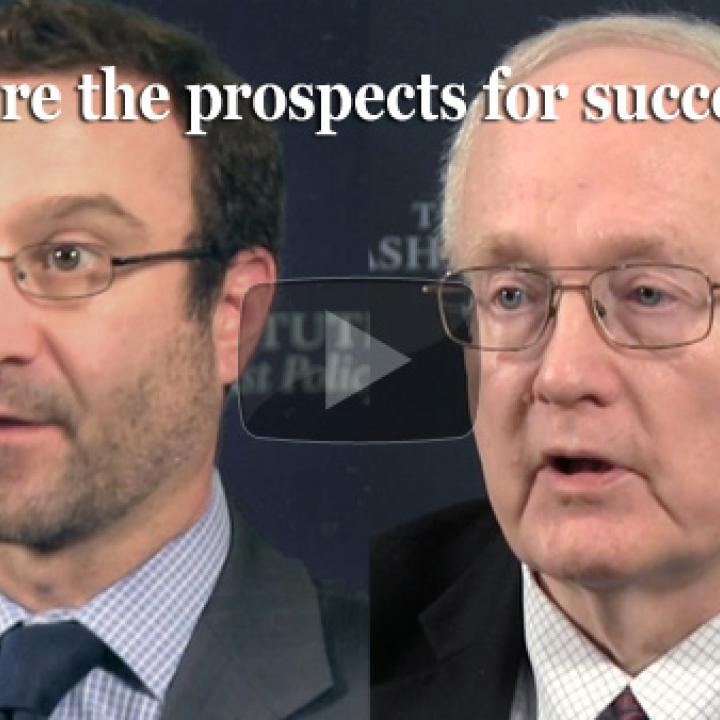
- Policy Analysis
- Interviews and Presentations
Geneva II: High Risk, Low Reward for the United States, Syrian Rebels

The international conference on Syria is unlikely to make headway toward a transitional government and might instead undermine U.S. interests in ending the civil war.
The international conference on Syria is unlikely to make headway toward a transitional government and might instead undermine U.S. interests in ending the civil war, explain Jeffrey White and David Schenker in the latest Institute FAQ video briefing.
"If at Geneva what we have is a discussion about terrorism, then we will have failed." - Schenker
"We need to get back into the game of providing military assistance to rebel forces that we can work with ideologically." - White
White, the Institute's defense fellow, and Schenker, its Aufzien fellow and director of the Program on Arab Politics, address U.S. policy options for avoiding worst-case scenarios at the summit and rebuilding our credibility and influence on the ground in Syria.
- What are the prospects for success?
- What positive results are possible?
- Could it make the situation worse?
- What can the United States do to bring an end to the conflict?
- Can Washington influence the flow of resources from the Gulf?
View the latest Washington Institute analysis on Syria.
Watch the Institute's Policy Forum briefing, "Geneva II and the Road Ahead."
THE SYRIAN CRISIS IN-DEPTH
No Good Outcome:
How Israel Could Be Drawn into the Syrian Conflict
Patrick Clawson, Michael Eisenstadt, Matthew Levitt, David Schenker, Andrew J. Tabler, Jeffrey White, and Aaron Y. Zelin
Given the complexities and dynamics of the Syrian conflict, it is distinctly possible that Israel could be drawn into the fighting. How can Washington help minimize this risk and the attendant strategic threat of increased regional instability and escalation? Read more.





